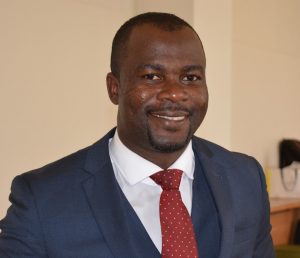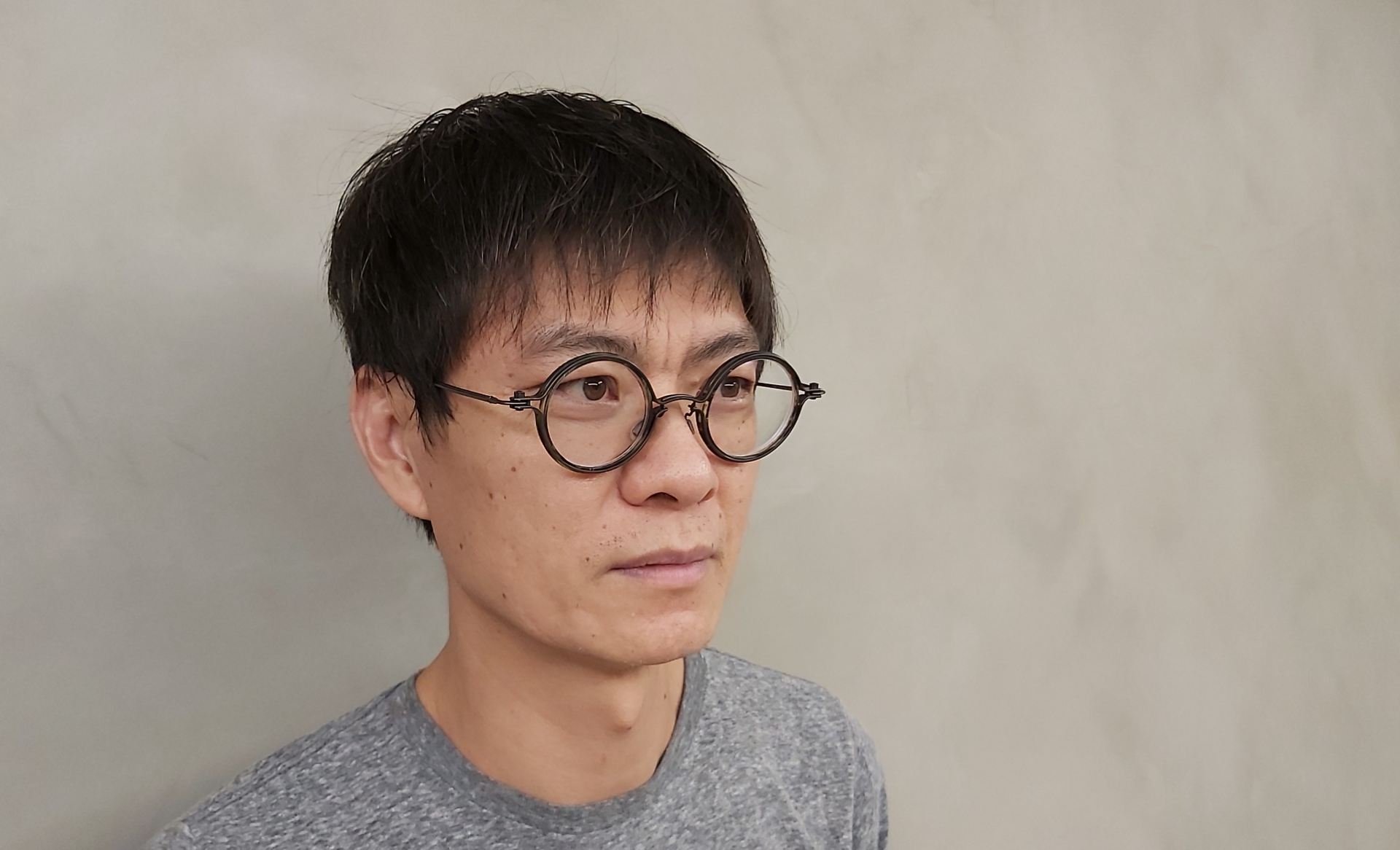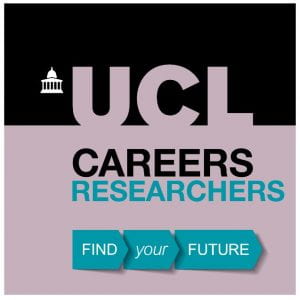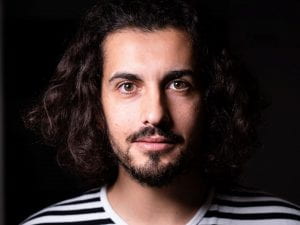What’s Academia like in the US? – Dr Nelson Y. Dzade
By uczjsdd, on 13 July 2022
Dr Nelson Y. Dzade gained his PhD from in Computational Materials Science from UCL, and is now an Assistant Professor at Penn State University. He kindly took the time to tell us about his current role, his career journey, challenges and about any useful tips for researchers wanting to pursue a similar career.
Tell us about your current role and organisation.
I am currently a Tenure-Track Assistant Professor in the Department of Energy and Mineral Engineering (EME) at The Pennsylvania State University (Penn State). I am also a co-funded faculty of the Institutes of Energy and the Environment (IEE) and an Associate of the Institute for Computational and Data Sciences (ICDS). I lead the Materials and Minerals Theory Group, which sits on the interface of Physical Chemistry, Applied Physics, Machine Learning, Computational Materials Science and Mineral Engineering. My research group specializes in the development and application of advanced theoretical methods (including first-principles electronic structure calculations and atomistic simulations) to unravel structure-property-performance relationships in solid state materials that are of interest for many practical applications in renewable energy generation, including but not limited to photovoltaics, heterogeneous catalysis, and high-capacity battery materials.
Regarding my current organisation, I would say that Penn State is a world class academic powerhouse and an R1 (Very High Research Activity) University in the United States. It is often considered as one of the “Public Ivies”: i.e., a publicly funded institution that is deemed to provide a standard of education comparable to that offered by the elite Ivy League institutions (like Yale and Harvard). Located across 24 campuses in Pennsylvania and globally online, Penn State is one of the largest universities in the US with over 100,000 students and 17,000 faculty and staff. I work at the University Park campus in State College, which is the largest campus and serves as the administrative hub. The Department of Energy and Mineral Engineering where I am based is a unique department with world-class faculty experts in science, engineering, economics, and statistics as applied to the energy and mineral resources sector. In contrast to traditional disciplinary departments, EME faculty encompass the range of disciplines required for the energy and environmental challenges of today and for the next century.
How did you move from your PhD to your current role?
I have always wanted to work in academia, where you’re constantly learning, researching, publishing quality and difference making research works, teaching, and training/mentoring the next generation of professionals –teachers, scientist, engineers, policymakers. My motivation is derived from a quote from Albert Einstein that says “A hundred times every day I remind myself that my inner and outer life are based on the labours of other men and women, living and dead, and that I must exert myself in order to give in the same measure as I have received and am still receiving”.
To prepare myself for this, after my PhD at UCL’s Department of Chemistry in 2014, I took a postdoc position at the Department of Earth Sciences, Utrecht University, The Netherlands, where I worked with some distinguished scholars: Professor Nora de Leeuw, Professor Bert Weckhuysen, Professor Emiel Hensen and Professor Jan Philipp Hofmann on a Dutch Research Council (NWO) funded project. These projects led to several high-impact publications, in particular a high impact paper in Advanced Materials, and in ACS Energy Letters.
In 2018, I was awarded the EPSRC Innovation Fellowship for my proposal entitled “Computer-aided design of zinc phosphide heterojunctions for efficient solar energy conversion” which was hosted in the School of Chemistry at Cardiff University, UK. With this award I became an independent researcher and established a high-calibre computational-experimental research programme, delivering breakthrough insights into the surface and interfacial phenomena in semiconductor heterojunctions and composite materials for green energy conversion and storage. Through the EPSRC Innovation Fellowship, I developed my leadership and supervision skills (mentored 2 Postdocs, 1 PhD candidate, 2 MChem and 3 BSc project students), created relevant research networks and established strategic collaborations with leading groups nationally and internationally both in academia and industry and produced some high-quality scientific publications. I also received the DUO-India Professor Fellowship Award in 2020, which enabled me to establish high-profile collaborations and exchange with leading Indian Scientists.
All these experiences and skills prepared me for my current position at Penn State. During the last year of my 3-years Innovation Fellowship, I begun to apply for faculty positions mostly in the UK and the US. I was shortlisted for a couple of them in the UK but even though I did not get them, I learned from the feedback I received and improved myself for the next one. The Penn State interview process was a whole new experience for me, it happened during the thick of the COVID-19 pandemic, so everything occurred via Zoom. The last phase of the interviews occurred over two days, including giving a research seminar, a teaching talk, research vision talk, and interviewing with Department Heads, Institute Directors, Deans and Faculties across the department of energy and minerals engineering and the Materials science and engineering department.
Did networking help?
Although I did a lot of information gathering online, it was always better to speak directly with someone working at the institution that could share their personal experiences with me and other information that I could not find online. So, I had to first identify potential people I could speak with for informal interviews. I started with people with whom I already have a connection: mentors, people I’ve met at conferences or professional networking events and also on LinkedIn who work at Penn State University. For those I do not have any direct connection with yet, I wrote to them introducing myself and requesting if they have time, I’d appreciate the opportunity to learn more about their research work and their department, and take suggestions they might have for someone like me who is interested in joining the department and the University. Luckily for me most of the faculties I reached out to were very responsive and supportive. That helped a lot!
What experience did you need?
Experience, they say, is the best teacher. The tenure review evaluates a professor’s contributions in three areas: research, teaching, and service to the university, so right from the onset the search committee will be looking out for evidence of experiences you’ve acquired over the years that would enable you excel at the post most especially in the areas of research and teaching. You need to demonstrate evidence of publishing high-quality scientific papers, delivering invited scientific talks at national/international conferences, independent grant acquisition, teaching skills, training/mentoring experiences, etc. You will also have to demonstrate your ability to attract or establish collaboration with leading groups across the world.
In terms of selling yourself to employers, it is important to know that the most important part of the job search – the interview, can make or break an opportunity. To do well at selling yourself to employers, it is crucial that you get comfortable talking about yourself. Give yourself permission to talk about yourself positively and to take pride in your accomplishments! Do not appear braggadocious, but you certainly don’t want to sell yourself short or shoot yourself in the foot. In order to sell yourself very well, (1) be a storyteller – Think of an interview as an opportunity to tell your personal brand story. Be animated. Be enthusiastic. Above all, be authentic. (2) Show, don’t tell – Use examples to illustrate the story you’re sharing. Don’t just use buzzwords like “collaborative”, but demonstrate with practical examples. (3) Tailor your accomplishment, expertise/skills, and experiences to meet the hiring department’s needs. Why are you the best fit for the post and what do you bring on board that other candidate may not have.
What were the most challenging parts of the recruitment process?
The difficult bit of the interview process for me was preparing for the research vision talk, as it is quite difficult to know whether the research directions you are proposing fit into the hiring department’s overall strategic research vision. You’ve also got to demonstrate how you are going to fund the proposed research. To overcome this, and prepare an excellent Research vision talk, I had to carefully read the job advertisement again and again to find what lines of research they were intending to strengthen, so I could tailor my talk to address that. I also had to gather information about the different research themes in the department and make sure I demonstrated clearly how my research activities are going to be uniquely different, but can strengthen/complement existing research portfolios in the department.
What does a normal working day look like for you?
My job is supposed to be 40% teaching, 40% research and 20% service. In reality, it’s more like 60% research, 50% teaching and 30% service, and yes I realize that adds up to more than a hundred percent! But my typical day looks like a mixture of these three things.
Firstly, teaching: I love teaching and that’s why I am a professor, instead of working in industry. Teaching loads vary from semester to semester. In my first semester (Fall) at PSU, I co-taught the course EME 301: Thermodynamics in Energy and Mineral Engineering and in Spring semester, I taught the course EGEE 437: Design of Solar Energy Conversion System and co-taught the Thermodynamics in Energy and Mineral Engineering course again both at the undergraduate level. Basically, the things that I do related to teaching are teaching, i.e., being in front of a classroom, preparing for teaching, i.e., things like reading stuff and setting up discussion documents, creating slides, setting up course materials, and also grading course and answering questions from students, and giving feedbacks. To be clear, I always endeavour to deliver high-quality and well-organized lectures; I care a lot about my students, thus I also do care a lot about the materials I teach my students.
The next part of my job, arguably the most important part, at least in terms of things like job performance, is research. It’s a big deal and I love doing research, which is another reason I am a professor. I work with my graduate students and collaborators on innovative and transformative research projects and publish a lot of high-quality papers with them. This means mentoring and helping my students, a lot of editing, a lot of feedback, and a lot of meetings. There are a lot of things that come after the research, giving presentations and talks. I really care about publishing scholarship, so I tend to tweet about or share our research results on LinkedIn. Finally, grants drive research, so a big part of my job is asking people for money in increasingly complicated ways. The most complicated way involves spending many months and hours of work writing proposals to ask funding agencies like the National Science Foundation (NSF) or the Department of Energy (DOE) to please give me money. In my discipline, not only is bringing in grant money a big part of my job performance and determines in part whether I get tenure, but I also need grant money to pay PhD students.
Finally, service to my department, to my college, to my university at large, and to my scholarly slash professional community: At the local level, this involves things like attending faculty meetings, serving on communities, e.g. the graduate committee or qualifying exams committee, which I currently serve on. And then, there is service to my scholarly slash professional community, for instance, I serve on the Editorial Board of Modelling, Theory and Computational Catalysis, for Frontiers in Catalysis Journal and as Guest Editor, for Engineered Science, Materials and Manufacturing. I also peer-review manuscripts for several of the top-ranked scientific journals.
What are the best things about working in your role?
A tenure-track position at a top-ranked University like Penn State University is often highly coveted not only because it offers job stability and higher pay, but because it offers academic freedom. One of the things I love about my job is you get to pick what kind of research to do and you get to choose your own research team (graduate students and postdocs) and collaborators. I also get to train/mentor and inspire my research students to become the next-generation of experts and professionals. Our students come to us with a considerable amount of talent, and I think my role as a supervisor/teacher is to help them translate those talents into creativity. I try to do this by sharing my passion for knowledge and curiosity with my students, inspiring their creativity, developing their critical thinking ability, and preparing them for the complex world they will face after stepping off campus. I strongly believe in the saying that “Education is what survives when what has been learnt has been forgotten.”
What are the biggest challenges?
As with any new adventure, the first few years of the tenure-track position, in particular can be very challenging as you must learn to manage the new divergent responsibilities/demands and the escalating expectations. Thus, one of the biggest challenges is the time pressure, which increases the stress and anxiety levels. You are evaluated on teaching, research and service, and you are expected to meet a certain bar for all three of these criteria and be exceptional in one at least. So as a new faculty member, setting your priorities right and finding time to do the most important and most rewarding things can be very challenging. In higher education, especially in a totally new country with completely different cultural background to the one I was used to, one of the most significant challenges I face is being able to engage with the students individually and what I mean by that is knowing them both as individuals and also the culture and background that they come from. It also involves understanding the different learning abilities and capacities of my students. And because the student numbers can be very large in a place like Penn State, this is quite challenging at least for now. But I strongly believe it will get better with time.
What’s the progression like in the US?
The tenure track is a professor’s pathway to promotion to the promised land and academic job security. It’s the process by which an Assistant professor (Lecturer in the UK) becomes an Associate professor (Reader in the UK) and then a Full professor. A professor who is on the tenure track is expected to go up for a tenure review 5/6 years after starting the position, where his/her contributions in three areas: research, teaching, and service to the university will be evaluated.
And is the working culture different in the US?
I’ve worked in the UK and the Netherlands, and now the US, and there are always cultural differences when you go somewhere new, so you have to learn the new rules of engagement. Generally, the US system is incredibly forward-focused. People are very proactive and they are always thinking as big as possible; like, always thinking, what next? It’s great because it keeps you at the top of your game too. But it does feel like everything is faster here, everyone is an early bird in the office. It’s just the nature of the US system really, it kicks things up a gear. Don’t get me wrong, everyone works extremely hard in the UK and the Netherlands too, but I think this does feel like an even faster march! And in Rome, you must do as the Romans do. So I’ve adjusted to the culture, and who knows, maybe I’ll even speed beyond them!
Also, if you’re used to the grant system in the UK, you will find things a bit different here. Of course there are huge similarities, in that funding will always go to cutting edge science that is innovative, risky, but rewarding. But things can be a bit different (depending upon the funding organisation). For instance, in the UK I noticed that for the most part, for fellowships and grants they are largely judging the quality of the research proposal. Whereas here it feels more like fellowships and independent early-career grants are judging not only the research, but also the education proposal. So if you’re used to writing only about the science and how you will develop as a scientist, here you may have to shift the focus slightly. It’s a lot about the science of course, but it’s also about how you are going to use that to educate other people, how are you going to engage with people, even to the secondary school level. How is that research going to start changing people, building people, educating people? So if you write a very excellent research proposal without a very excellent education proposal embedded within it, you may find yourself completely lost.
And there are other small differences in terms of style that it would be good to recognise when putting together US applications or talks. Here, they like things to be very direct. In the UK, people are perhaps a bit wordy, but here, they want you to get straight to the point and be very precise: what is it you want to do? What’s your hypothesis? No flowery build up as there might be in the UK!
What top tips would you pass on to researcher interested in this type of work?
It is always very important that you:
Take ownership of your project: Your research project is your baby. There will be loss of sleep, and growing pains, but you will develop a special bond with it. You should know more about your research project than anyone else. Get the help you need. Take full advantage of group meetings, other faculties and others in your lab.
Network and find good mentors: No matter what you want to do with your life, networking is extremely important. Networking isn’t just about getting a good job, it’s about positioning yourself to be successful in that job. Identify the scientific community that you want to be in, and get to know that community. Know the leading figures in that community. Attend free local meetings and present posters/talks and attend national/international meetings and engage/speak with potential mentors or collaborators. It is always vital to find good mentors because the best way to accelerate your career growth is by finding great mentors who can help guide you through your early career and beyond. I have been blessed enough to have some amazing mentors such as Professor Nora de Leeuw and Professor Sir Richard Catlow (my PhD advisors) and many others who have been instrumental in shaping me as a person.
Position yourself to get good reference letters: Strong recommendation letters are more important to your future than anything else. Good reference letters can get you an interview at least! You need at least three strong reference letters, so take every opportunity to network with collaborators (send regular progress updates, for example), and talk about your research in front of other faculty. Also, speak at joint group meetings or your collaborator’s group meetings.
Develop your soft skills: Note that your PhD/Postdoc position would expand your scientific skill sets, but the most important skills you must gain to secure a faculty position at any University are the soft skills, like effective communication, effective writing, leadership ability, engaging teaching skills, networking, and mentoring skills. Mastering these skills will serve you well no matter what kind of job you want. For instance:
Learn how to write quality scientific papers, and how to give engaging scientific talks: No matter what you do with your life, it is important to know how to do these two things. Take the lead in writing papers based on your research. Take every opportunity to practice giving talks. Whether you are applying for industry or academic positions your job seminar is extremely important. Good letters get you an interview, a good talk gets you the job.
Learn how to write grants and apply for your own funding: Pitching your ideas for money is a very useful skill to acquire. Learn how to write research proposals by applying for your own funding or joint grants. Help your PI write a grant, even if it isn’t on the topic of your research. Ask others to see copies of their successful grants (sometimes they will even give you the critiques). Good grant writing skill is something that can be learned. If you are applying for faculty positions, you will need to write research proposals, and thus you will need new and innovative ideas. Read the literature broadly and attend seminars/conferences.
Learn how to train people: If you want only to do research with your own two hands, you shouldn’t have got a PhD. People with PhDs lead research teams (either in industry or academia). They rarely work in isolation. So, help in training/mentoring undergraduate research project students in your group. Take the time to show others in the group how to do something. Also, take courses in mentoring and teaching.
For postdocs specifically, plan for what comes after your postdoc: Once you’ve established where you’ll do your postdoc and who will be your mentor, it’s a good idea to do some self-reflection about where you want to go when you’re finished. I think it’s important to start that exploration early on. I personally worked very hard to make sure that I was making progress on my postdoc project but at the same time I was preparing the required materials to apply for faculty positions and Independent Fellowships. The first thing to plan for when you start your postdoc is when to leave it. Postdoctoral fellows need to be strategic, once you get beyond a certain number of years doing postdoc, it’s not a training position anymore—it’s a job!
Are there any specific tips you would give to people graduating into the current uncertain climate?
If you are a new graduate feeling uncertain about your future, you are not alone. Several other graduates may also be experiencing similar significant and unexpected disruptions to their plans due to the emergence, spread, and long-term impact of COVID-19. Uncertainty about job opportunities and disruption to regular routines can make an already stressful job search feel even more challenging. However, there are several actions you can take to empower yourself and make informed decisions about your future.
Consider short-term or unexpected work in the interim: Depending on your financial situation, it may be necessary to consider short-term work or work outside your area of expertise whiles you continue to search for your dream job. Some of these jobs may not be the type of work you may have anticipated, but having an extra income can help you navigate this uncertainty after graduation with more confidence. Learning to work remotely or in-person during this time could add a rich experience to your resume and give you an advantage in the long run. Showing employers that you were able to adjust to this challenging situation could make your application more competitive. When looking for job opportunities, prioritize transferable skills and soft skills that could support you in your chosen career path. Even if a job is not in your ideal industry, there may be opportunities to develop skills that you can leverage later when applying for future jobs. For example, complex problem solving, remote software use, defusing conflict and communication are experiences that could be added to your resume in the future.
Continue to enhance your skills: As the saying goes “education never ends”. With your university/college courses completed, now is the perfect time to continue enhancing your skills and certifications to ensure that you remain a desirable candidate. This is particularly true if you’re in a field that evolves rapidly. However, no matter what your chosen profession is, continued education demonstrates that you aren’t ready to just wait for an opportunity to happen—you’re making things happen. This type of self-motivation is an incredibly desirable trait for employers (more so now than ever before), and it will definitely help you gain an advantage over the other candidates.
Update Your Information: When the perfect job opening comes along, you want to be ready. Remember, the saying “The early bird catches the worm.” Constantly update your resume and cover letter so you can submit them quickly when you do find a prospect. You should also update and develop your LinkedIn profile, which can increase your chances of being contacted about an opening. Be sure to highlight your skills that are essential for remote working arrangements, such as great communication, adaptability, technological proficiency, self-motivation, time management, and remote collaboration. These skills are particularly valuable to employers in today’s environment.
 Close
Close












